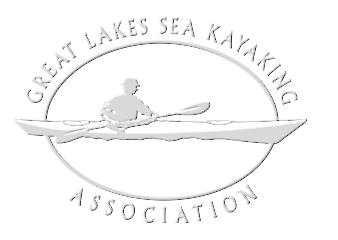by Ralph Gardave
For those of you who know me you know that I’m a strong proponent of training and practice. It is this be-lief that was behind the offering of the White Squall workshops at Rendezvous. As I write this on Dec 05 it has been less than two weeks since I was in the pool myself. No, none of you missed out on a GLSKA pool event. As hard as it may be to believe I have some other kayaking friends that are not GLSKA members. I’m working on them but so far only a few have been indoctrinated into GLSKA. During my pool sessions I make it a priority to practice solo rescues, assisted rescues, re-enter and rolls, and regular rolling in that order of priority. As it turns out in my recent session someone taught me an assisted rescue that I was totally new to me.
To emphasize my belief in training and practice I’m going to tell you stories of two other experienced kayakers. Both of the people that I’m going to tell you about are certified Paddle Canada Instructors. Both are very proficient at rolling and teach others how to roll. Both have in excess of 20 different rolls that they are very good at and practice to perfection on a regular basis.
The first person I originally met (whom I will refer to as Gordon) when I took my Paddle Canada Level II certification. Gordon was already a well certified BCU paddler but needed to take the Paddle Canada course so that he could move forward with obtaining his Paddle Canada Instructor certification. For teaching insurance purposes it is difficult to get coverage unless you have Paddle Canada certification. As part of a skills course, we had to teach sections of the course to the other participants in the program. During my dry land session on the value of solo and assisted rescues Gordon glibly piped up and stated that he saw little value in him practicing solo rescues since he had such an extensive repertoire of rolls that he was very proficient at. As fate would have it Gordon broke his paddle and was forced to do a wet exit while doing a roll later in the day. Gordon found that he had great difficulty getting back into his boat unassisted, even with his spare paddle, because he had not practiced this in a very long time.
The second person I will refer to as Paul. On an early spring paddle Paul was out for the first paddle of the season with several other experienced paddlers. I should mention that Paul is also a nut for white water kayaking which requires the use of rolls on a much more regular basis than sea kayaking. Paul was so excited to be back in a kayak after a long winter that he was rolling to excess and soon became cold and exhausted. Finally this caught up to him and he failed a roll and had to wet exit. Paul too was faced with the challenge of getting back into his boat, again something he had not practiced in a long time. Only with assistance from the other paddlers was he able to get back into his boat.
I have the highest regard for both Gordon and Paul as excel-lent paddlers, rollers, and instructors. Both of the experiences above highlight the value practicing the most basic of skills, even for the most experienced paddlers, as you may need it someday.
GLSKA has and will continue to offer opportunities to practice, improve, and possibly even learn new skills. Your opportunity will soon arise to work on your own skills though the upcoming GLSKA pool sessions in both Burlington and Toronto. I believe that the Rendezvous Committee is also investigating the possibility of having White Squall return for the 2015 Rendezvous. If you are unable to participate in either of these events then maybe you can find your own opportunities to practice when the paddling season begins again. Even better is if you can find a buddy to practice with so that you can then practice both solo and assisted rescues.
